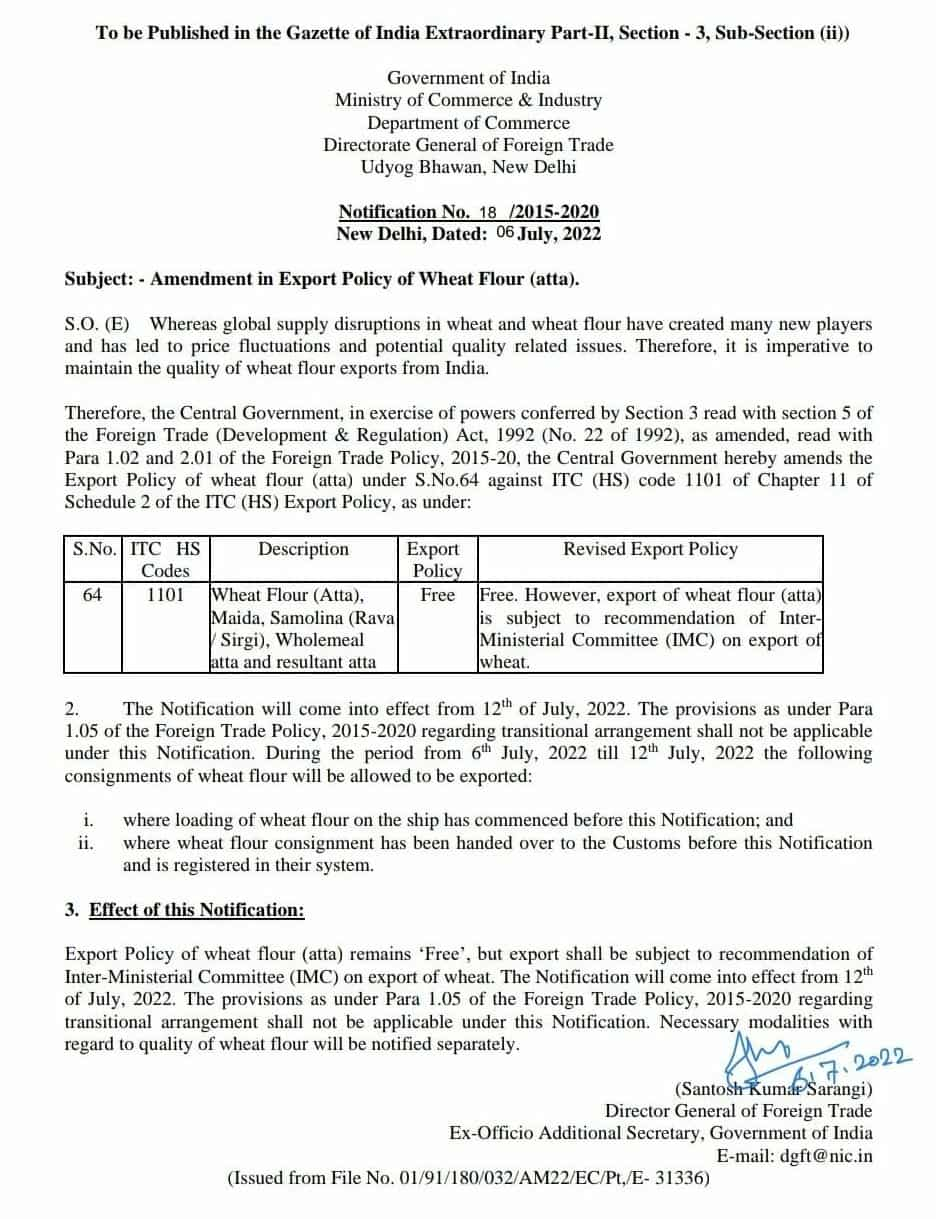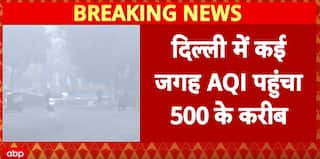After Ban On Wheat, India Now Curbs Export Of Flour And Other Related Products
According to a notification from the Directorate General of Foreign Trade (DGFT) issued on July 6, the arrangement will come into force from July 12

After banning wheat exports, the central government has tweaked its export policy for wheat flour and other related products, the government said in a notification on Thursday.
The Centre has asked traders to secure permission before exporting the commodity.
According to a notification from the Directorate General of Foreign Trade (DGFT) issued on July 6, the arrangement will come into force from July 12.
The DGFT notification has made it mandatory for all exporters to seek prior permission from the inter-ministerial committee on wheat export before undertaking any outbound shipment.
The notification stated that global supply disruptions in wheat and wheat flour have created many new players and have led to price fluctuations and potential quality-related issues. Therefore, it is imperative to maintain the quality of wheat flour exports from India.
The government banned wheat exports in mid-May as a scorching heatwave curtailed output and domestic prices hit a record high. After the ban, demand for wheat flour jumped from neighbouring countries struggling to secure wheat at lower prices from other suppliers.
However, unlike wheat, there is no outright restriction on the exports of wheat flour and related products.
According to news reports, products such as maida, semolina have also been included in the export curb as per the DGFT notification.
Food Secretary Sudhanshu Pandey last month had indicated a possible curb on wheat flour exports, suggesting wheat should not be converted to “excessive” amounts of atta for exports as wheat is a regulated commodity.
According to government data, about 30 lakh metric tonnes (3 million tonnes) of wheat have been exported during this quarter.






































